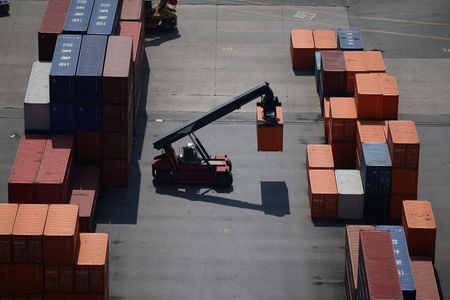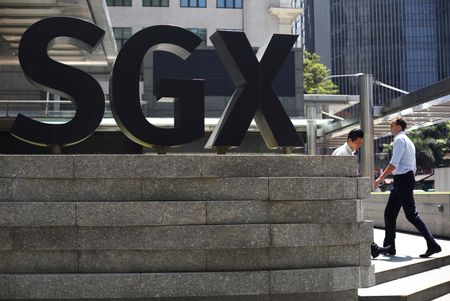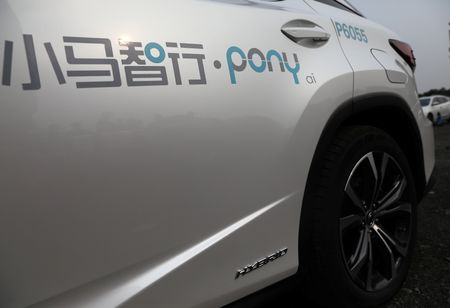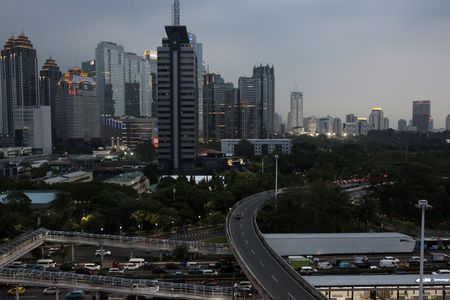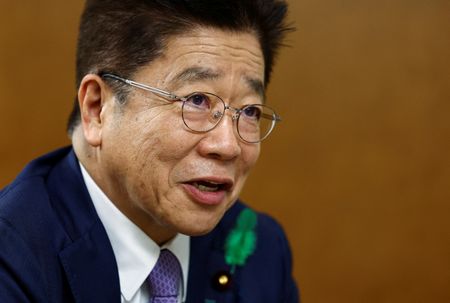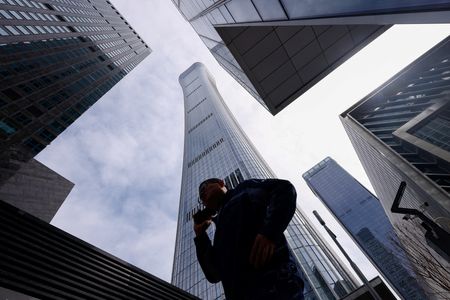By Cynthia Kim
SEOUL (Reuters) – South Korea’s economy unexpectedly contracted in the first quarter as exports and consumption stalled amid fears over the impact of Washington’s aggressive tariffs, fanning expectations of more interest rate cuts.
Gross domestic product (GDP) contracted 0.2% from a quarter earlier on a seasonally adjusted basis, shrinking for the first time since the second quarter of 2024 and missing forecasts for a gain of 0.1% in a Reuters survey.
The weak data will increase calls for the Bank of Korea to cut interest rates again as soon as next month as policymakers worry about the consequences of Trump’s tariff policies, which some analysts fear may tip one of the world’s most trade-reliant economies into a downward spiral.
“Industrial output all across was sluggish in the first quarter along with consumption, and exports began to be a drag on growth amid external uncertainties,” said Huh Jae-hywan, an analyst at Eugene Investment & Securities, who correctly foresaw the economy would contract 0.2% in the first quarter.
The BOK last week signalled it would cut rates in May and left the door wide open to further monetary easing to cope with “significant” risks to the economy from U.S. President Donald Trump’s sweeping tariff policy.
It held the benchmark interest rate at 2.75% as expected on April 17 following three reductions since its rate-cutting cycle began in October.
Analysts see policy interest rates reaching 2.25% by the end of the third quarter this year as shifting U.S. tariff policies fuel fears of a global recession and threaten to sharply curtail exports out of Asia’s fourth-largest economy.
A breakdown of Thursday’s data showed construction investment dropped 3.2% from the preceding quarter, while capital investment and exports declined 2.1% and 1.1%, respectively.
Private consumption declined 0.1% in the January-March period after gaining 0.2% three months earlier.
South Korea recently suffered its worst wildfires on record and has faced domestic political turmoil, which the BOK says hurt sentiment among consumers and businesses.
“Investment sentiment among corporations deteriorated in recent months and many were hesitant to make new investments,” a BOK official said after Thursday’s data was released.
“We are more positive about the second quarter as some sluggishness in investment may ease, although it’s difficult to expect rapid recovery from the construction sector.”
Preliminary April trade data showed exports declined 5.2% for the first 20 days of the month, underscoring the risks to the export-driven economy from Trump’s protectionist policies.
Outbound shipments to the U.S. dropped 14.3% from a year earlier, as Trump imposed a 25% tariff on auto imports and a 10% levy on all other shipments earlier this month.
The country’s finance and trade chiefs are visiting Washington D.C. this week to meet their U.S. counterparts as South Korea seeks to cut tariffs.
On an annual basis, the economy contracted 0.1%, also weaker than an expansion of 0.1% seen in the poll and down sharply after growing 1.2% in the previous quarter.
In 2024, Asia’s fourth-largest economy grew 2.0%, after expanding 1.4% in 2023, according to the BOK.
(Reporting by Cynthia Kim; Editing by Ed Davies and Sonali Paul)

